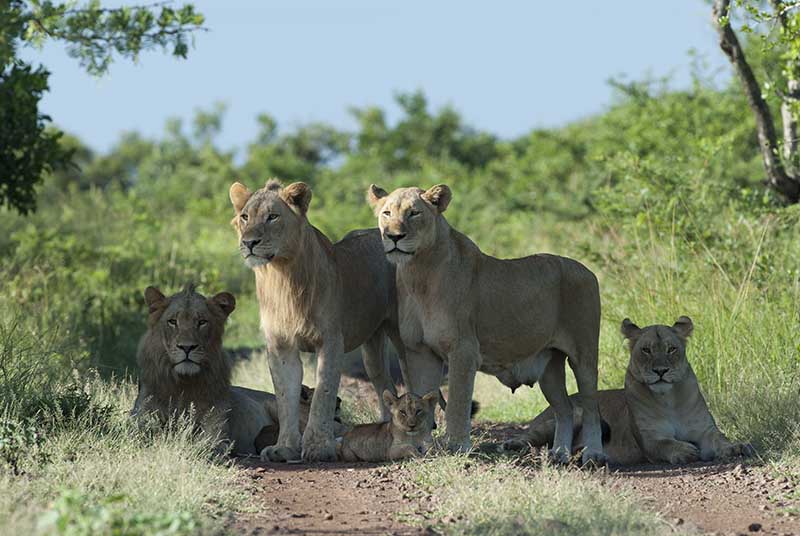personal information
Tips for Feeling Safe on Your African Safari
08/07/18 Filed in: safari travel advice

If you’re looking for an exciting vacation that you’ll always remember, look no further than an African safari. When you go on safari, you’ll experience some of the most interesting sights and sounds of your life while also be able to enjoy activities that you won’t be able to find in any other vacation destination.
However, if you want to enjoy your safari as fully as possible, you need to feel safe throughout your entire trip. Fortunately, feeling safe on safari is easy when you follow a few simple tips. Here is some advice for feeling safe on an African safari that will allow you to enjoy this one of a kind vacation without fear or worry.
Keep Your Distance
When going on an African safari for the first time in your life, it’s likely that your most anticipated activity is seeing exotic animals in their natural habitat. While seeing a lion or an elephant in the wild can certainly be thrilling, you also want to be sure that you’ll feel safe, which is why it’s crucial to maintain the proper distance from these creatures.
Viewing safari animals is perfectly safe as long as you’re certain to not get too close. With lions, for instance, you can get fairly close as long as you stay inside of your safari vehicle. When you’re viewing elephants, you may want to stay further away, as they travel in herds and may get spooked if you get too close or approach to rapidly. Being careful about how close you’re getting to the animals is an easy solution for feeling safe on safari.
Be Aware at All Times
Although there are several ways you can stay and feel safe while on safari, the most effective is staying aware of your surroundings. Too many people going on safari assume that they can rely wholly on their guide to keep them safe. While your guide will do everything they can to keep you from harm, you must also take some responsibility for your own security.
While you’re walking around, keep your eyes open and listen for any unusual sounds. This should help you detect potential threats so that your safari will be safe and fun.
Listen to Your Guide
Maybe the most important thing you can do to feel safe on safari is to trust your guide and to listen to their instructions as carefully as possible. Your safari guide has been trained to give you a fantastic vacation experience while keeping you safe, and if you fail to listen to their instructions you may be putting yourself and your fellow safari-goers at risk.
If you put your trust in your guide, you’re guaranteed to have a safe safari that you’ll remember for the rest of your days.
Going on a safari is the best choice for your next vacation, and as you can say, feeling safe on an African safari is easy when you follow these easy and effective tips. Start booking your safari today and keep this advice in mind so that you can have an exhilarating vacation of which you’ve only dreamed.
Jill Liphart for Roho Ya Chui
7 Essential Informations needed with your African safari booking
03/05/18 Filed in: safari travel advice
Booking an African safari holiday comes with excitement about the safari destination, the Big Five, one wish to spot, the choice of the game reserve and the time of the year for the right weather and best wildlife sightings. During this process questions will be asked about the number of persons travelling, the available budget and more of this kind. When finally the booking is made, some more information is requested and for a good reason.
Travelling comes always with some risk and travelling to the African bush adds the adventures of the wild. Although professional rangers/guides and lodge staff will look you after, nature can have its surprises. Extreme rainfall can cause floods or in the dry season a bush fire can occur. As said, the professionals will look after you, but there is always a rest risk of the unforeseen.
Besides nature’s moods, you could fall ill during a safari or do a misstep and twist your foot. These things can also happen while you are at home, but there medical aid is in general right at hand. When being at a private camp on a high ranked safari destination like the Okavango Delta, medical aid is not in direct reach. A light aircraft transport will be necessary to get you to a hospital. This is also quick, but costs a bit.
In order to assist you best in case of an emergency, some essential information is needed:
1. Your passport details for registration with medical/evacuation services.
2. Your travel insurance name and number to cover the costs of medical aid and possible evacuation/repatriation.
3. Your health insurance name and number.
4. Information on possible medical conditions the operator should be aware of.
5. Information on possible allergies and dietary requirements.
6. The name and phone number of a person to be contacted in case of an emergency.
7. Your cell number for operational emergencies like changed transfer/flight times or similar.
By providing this information, safari ground handlers and lodge staff can efficiently and quick help and organize whatever might be necessary to make sure you are safe. Your African safari should be worry free, also when the unforeseen happens or nature turns wild.